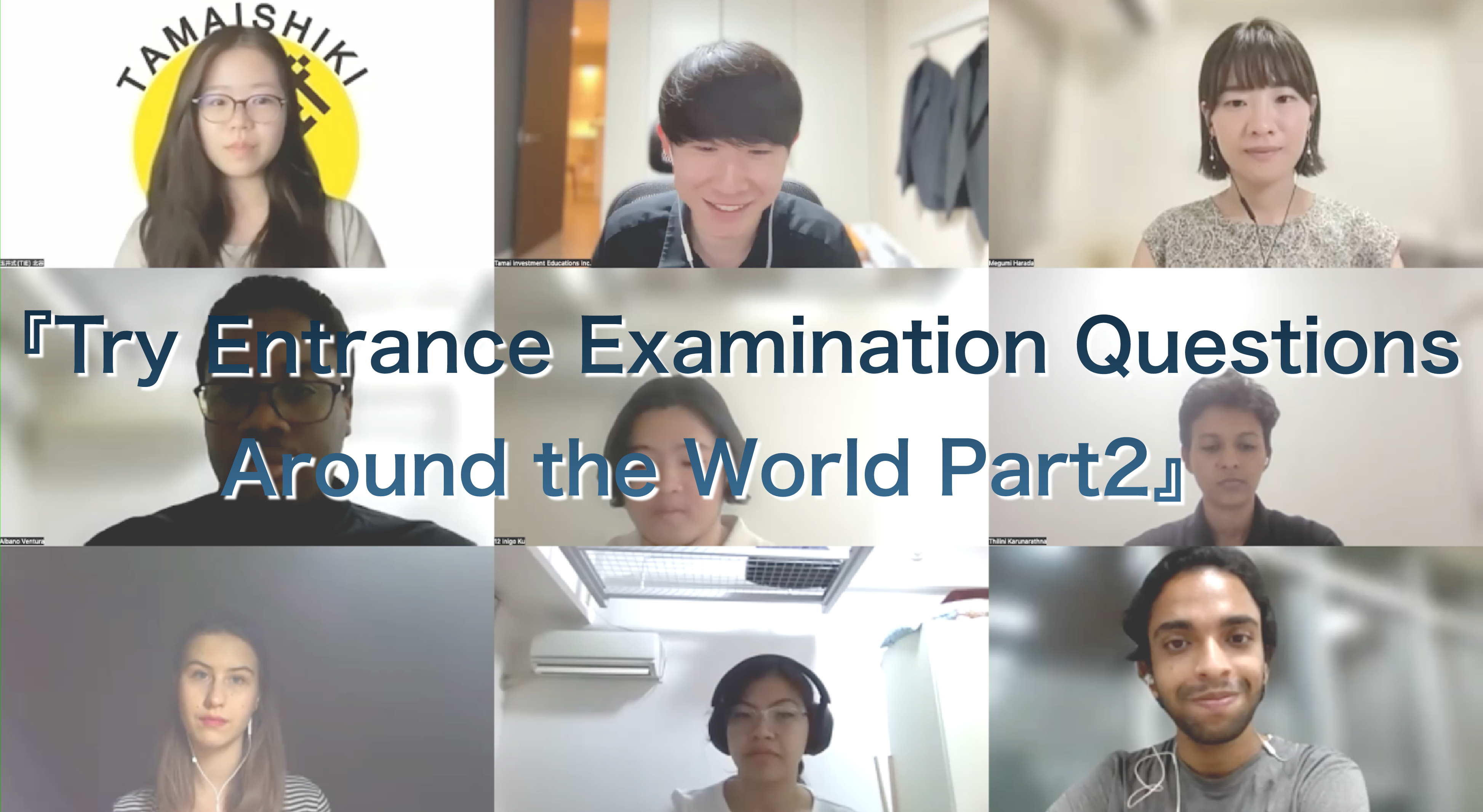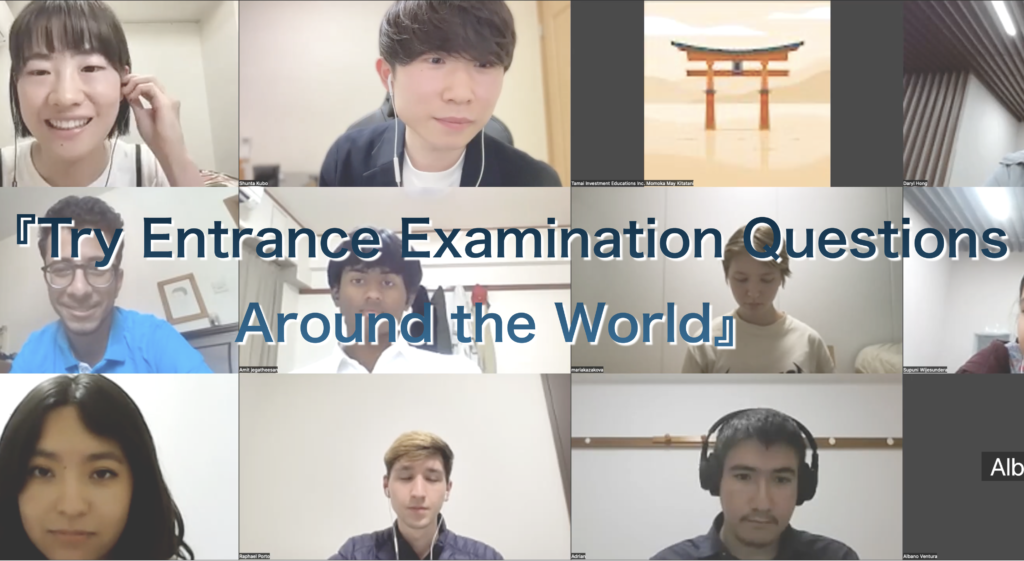
2023/08/21
TWELVE 2nd Online Event "Challenging the World's Entrance Exams! Part 2"

On May 31, 2023, TWELVE held its first-ever online event, where experts from various countries introduced the characteristics and problems of their respective university entrance exams. Through presentations and discussions, valuable information was obtained about the format, difficulty level, and intriguing differences in education systems among different countries.
Highlights!
2 Minutes per Question!?Adaptive Testing with Changing Difficulty Based on Performance!
Begad – EmSAT (UAE)

Begad, a Senior Academic Support Specialist at Emirates School Establishment and have an astounding knowledge of ESE (Education Standardization), introduced the concept of adaptive testing used in EmSAT. In adaptive testing, the difficulty of the questions increases based on the test taker’s performance. With only 120 minutes to answer 60 questions, he emphasized the importance of techniques of shortcuts and utilizing choices. It was also mentioned that EmSAT allows the use of a calculator application on its website. During the Q&A session, the host, Kubo (Japan), referred to how long it takes to solve Japan’s entrance exam questions (30 minutes to 1 hour per question) and expressed surprise at the short time limit of 2 minutes per question.

Intuition Matters! Digital Tests with Varying Content for Each University!
Adrian – IPN (Mexico)

Adrian presented on the digital tests conducted in Mexican universities. While some universities use the SAT scores (a standardized test from the US), most have their own entrance exams. The use of calculators is allowed in specific sections, and the subjects covered include mathematics, physics, chemistry, biology, history, and Spanish, among others. He explained that intuition becomes crucial, especially in geometry problems in mathematics. During the Q&A session, Vanesa expressed her amusement at the alternative solution discussed, Apollonius’s theorem, saying, “I’m also from Mexico, but I never learned that (Apollonius’s theorem). Teaching methods vary even within the same country.”

Five Hours Straight!? Strategy is Key in the Unified Test!
Raphael – ENEM (Brazil)

Raphael explained about the ENEM (National Exam) in Brazil. While the difficulty level of this exam is not extremely high, the key is to develop strategies on your own since there are very few preparatory schools available. The exam covers contents learned in high school, including mathematics, physics, chemistry, biology, and history. This exam lasts a staggering five hours! The Q&A session discussed preparatory schools, where it was mentioned that Japan has many such schools, and students learn strategies there. In Brazil, however, it is more common for students to prepare on their own.

IIT, the Most Challenging Exam with a 0.07% Pass Rate!?
High Difficulty and Short Time Limit in the Unified Test!
Amit – JEE (India)

Amit shared information about JEE (Joint Entrance Examination) in India, which is highly significant for engineering. While AISSCE (All India Senior School Certificate Examination) is the only mandatory exam in India, many students take JEE to gain admission to top universities. The difficulty level of this exam significantly exceeds that of high school, so it is common for students to spend a year preparing after graduating. During the Q&A session, Daryl (Malaysia) expressed astonishment at the admission rate of only 0.07% for IIT (Indian Institute of Technology). The discussion also touched upon the potential psychological challenges these exams pose for students.

This event revealed significant variations in exam formats and difficulty levels across different countries. It was also intriguing to learn about how students from various countries prepare for exams and acquire strategies. The first event provided a valuable opportunity for education specialists from different countries to gather and share global insights on education.

The next event is scheduled for 26 July. If you are interested in participating in TWELVE, please feel free to contact us through this page!
(Note: The content above is the highlights of TWELVE’s online event. Some parts of the presentations and discussions may have been omitted.)